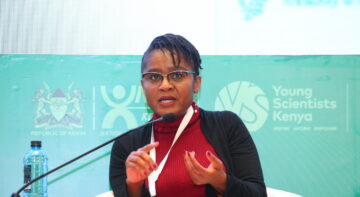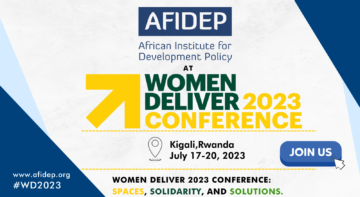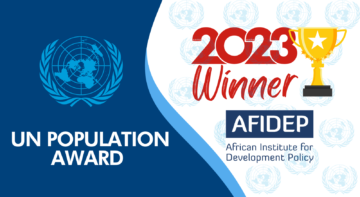News

The second day of the 2016 National Conference on Population and Development, for Malawi got underway today as delegates begun to delve deeper into more specific areas needing attention in order to lay the foundation for Malawi to harness a demographic dividend. Themes on contraceptive use and family planning dominated most of the sessions.
The Resident Representative of UNFPA in Malawi, Dr. Dan Odallo, moderated the first plenary session about Repositioning Family Planning to open the window of opportunity for harnessing the demographic dividend in Malawi. He challenged participants to think through “what needs to be done differently” in order for Malawi to achieve aspirations set in its development blueprint “Vision 2020″ to achieve 60 percent contraceptive use it targets by the year 2020.
Discussions on barriers to delivery of “youth friendly contraceptive services” dominated the opening plenary, particularly because research continues to show a high level of unmet needs for these services.
Much of the day was taken up by breakaway sessions led by experts and seasoned practitioners who shared research findings, case studies and experiences from the field on various themes that included: demand creation for long acting reversible family planning methods; new technologies in youth-focused rights-based family planning programmes; HIV and contraceptives; male involvement and inclusion in family planning; and linkage between population dynamics and economic development.
As a facilitator in one of the sessions, Dr. Abiba Longwe-Ngwira, a Knowledge Translation Scientist at AFIDEP, who is based in Malawi, presented early findings of an ongoing study titled: Enhancing investments in youth sexual reproductive health and rights: a call for integrated policies and programmes. Following her presentation, there was consensus that the expression “early marriage” could be misleading in the context of Malawi, where the minimum age of marriage is 18 years. The proposal was that it be replaced with the phrase “child marriage,” given it is most commonly used to refer to marriage of girls aged below 18.
In another session, research carried out by AFIDEP on the status of integration of maternal and child health (MCH) services in Malawi was shared in session led by Senior Knowledge Translation Officer, Violet Murunga. She presented the findings of study titled: Health system stakeholders’ perspective and policy and service-level challenges and opportunities for delivering sexual reproductive health (SRH) an HIV care through the MNCH platform in Malawi.
Noting that integrating health services meant to serve a certain category of people, such as women of childbearing age, has globally been found to be the most cost effective approach, many governments, including that of Malawi, have still not developed policies for integrating MCH, leading to numerous bottlenecks to access and high cost of service delivery. She pointed out: “Challenges range from the way services are funded to delivery mechanisms that do not favour integration.”
The final plenary session, which was led by Dr. Ellias Ngalande, a development expert and consultant economist, stimulated heightened debate about Malawi’s sluggish rate of economic growth. With the theme: Accelerating job creation for youth and working age population, Dr. Ngalande begun by candidly outlining challenges that the Malawi government and the people have encountered for the last 50 years. It was evident from his presentation that most of these were attributable to failure of implementation of the otherwise good policies drawn up over the years.
Speaker after speaker commended the facilitator for highlighting these issues with some giving personal accounts of what they are doing at a local level to change the situation to illustrate their positions. Young people were challenged to become more proactive in changing their own circumstances. Dr. Ngalande highlighted the measures below as part of what needs to be done to put Malawi back on the path to economic progress that will raise the country’s chances to harness a demographic dividend:
- Transforming agriculture through mechanisation, value addition and year-round irrigated agricultural production as opposed to relying on unpredictable rain-fed agriculture
- Investment in education and skills training
- Managing the environment for agricultural growth and sustainable development
- Engaging the private sector to turn it into the engine of economic growth
- Investing in tourism and the service industry
- Supporting the growth of the small and medium enterprises (SME) sector
- Positioning the economy to take advantage of youth innovation and modern information and communication technologies
The Conference will end tomorrow with Malawi’s Minister for Health, Dr. Peter Kumpalume set to preside over the final ceremony. He is expected to witness the adoption of a Communique’ outlining the key recommendations and action points to be agreed upon during the Conference.
Related Posts





